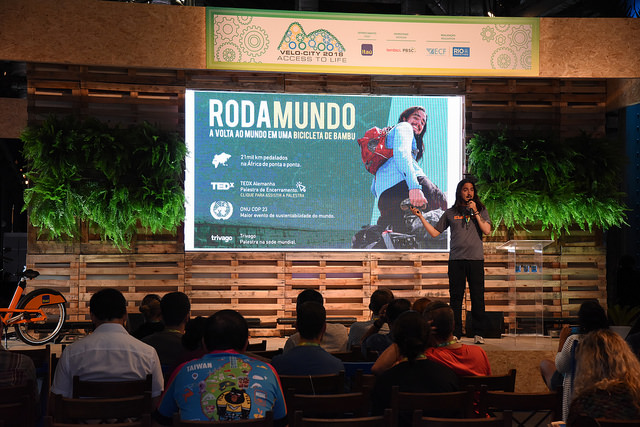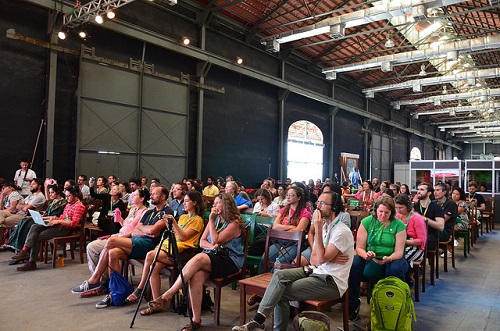
Velo-city day 3: Cycle tourism
Thursday’s session on cycle tourism showcased experiences from around the globe.
The first presentation by Anna Gurnhill, Global Operations Manager at CycleLife HQ, gave an overview of the company’s research on global cycle tourism destinations centred around the following questions:
- What is the scope and size of the market?
- What are the industry conditions?
- What are the challenges?
- What are the better practices?
- What’s the path to success?
They found that the turnover of bicycle travel and tourism is three times as high as the bicycle production industry – 100 bn US Dollar globally. The industry is growing (43% increase in mobile searches for bicycle tours during the last year), there’s a lot of unmet demand and the industry is highly fragmented. Bicycle tourism is one of the few global industries that hasn’t consolidated – it is constituted of a large number of small players. The industry lacks bargaining power, and a critical mass to support investment. However, on the upside, it’s easier to enter the market and to be authentic, to innovate and to differentiate locally.
The core factor deciding about the success of cycle tourism is the visitor experience, so destinations should first and foremost strive to improve it's quality.
Gurnhill gave some advice her company has identified from studying the success of some destinations: It is important to link local businesses and attractions to bike rides; to work collaboratively; to listen to customers; to identify and promote new bicycle business establishments; to focus on what makes them special; to engage and optimise social media channels; and to embrace digital wayfinding.

Pictures from Riotur
Rosa Felix, a cycling researcher and activist from Lisbon, presented a case study from Portugal about riding to summer festivals by bike. Her group organised a trip to the Portuguese Sustainability Festival Andanças with the goal of motivating people to cycle who might not have much experience. Therefore, they chose a flat route with easy traffic for the 180 km trip and planned 3 days for it. By using municipal facilities for sleeping, they were able to offer the experience free of charge. The trip was so successful that they now are the sustainable mobility partner of the festival, and many participants continued to cycle even after the trip in their everyday life.
Tatsuya Okado from Okinawa prefecture presented the economic effects of bicycle tourism on the Okinawa islands. The region received 9.4 million visitors during the last year, more than Hawaii. It offers many tourist attractions: nature and historic sites, beautiful sea and beautiful roads along the coast and bridges between the islands, which all have high potential value for bicycle tourism. Sport tourism is also popular on the islands; The Tour de Okinawa is an international bike race with growing economic impact (from 5 million US dollars in 2010 to 5.7 million US dollars in 2016). There are also guided cycling tours with thematic focus (e.g. pottering) offered for tourists. In many key touristic sites, bicycle rental spots exist. There are also bicycle maps indicating safe + comfortable bike routes and the location of bicycle rental stations offered.
Ricardo Martins from Brazil presented his experiences from riding his bamboo bicycle “Dulcinea” around the world. He has already crossed Africa, is now in Europe, and planning to go to Asia. According to him, bamboo bicycles are sustainable, very stable, and also sociable since they don’t look like an expensive bicycle that creates distance. For Martins, bicycle tourism has the advantage of simplicity that works everywhere. It can give people balance and stability for their life; it is not necessarily about overcoming big obstacles, even for long-distance trips like his. It can also help us to redesign the concept of speed and experience a different notion of time, both factors that help to support sustainable development by deviating from the dominant paradigm of ever-faster growth and increasing speed in our lives.
Network/Project Involved:
Contact the author
Recent news!
Upcoming events
Contact Us
Avenue des Arts, 7-8
Postal address: Rue de la Charité, 22
1210 Brussels, Belgium









